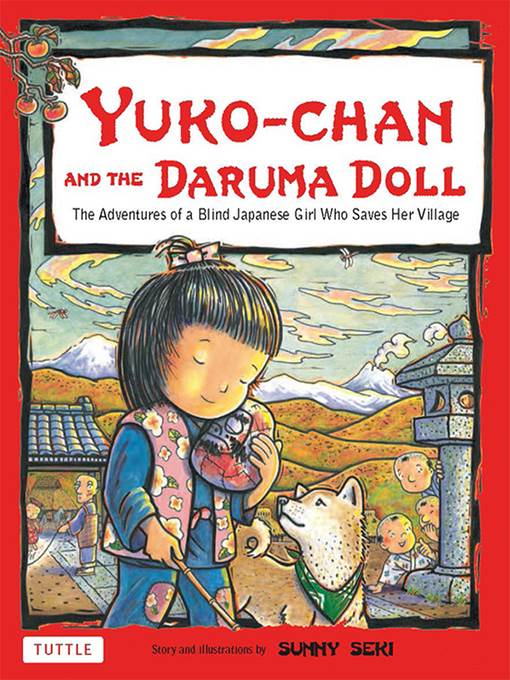
Yuko-chan and the Daruma Doll
The Adventures of a Blind Japanese Girl Who saves Her Village
فرمت کتاب
ebook
تاریخ انتشار
2012
Lexile Score
690
Reading Level
3
نویسنده
Sunny Sekiناشر
Tuttle Publishingشابک
9781462908448
کتاب های مرتبط
- اطلاعات
- نقد و بررسی
- دیدگاه کاربران
نقد و بررسی

January 30, 2012
Seki’s (The Last Kappa of Old Japan) friendly illustrations supply a wealth of visual information about pre-WWII rural Japan, showing farmhouse interiors, a temple with a rock garden and a schoolroom, and a village festival. His story is a character-building tale about an orphan girl named Yuko, whose blindness doesn’t prevent her from participating fully in village life. (Shown with closed eyes, tapping along with a cane, she may be perceived as a bit of a caricature.) Lost in the snow one winter day, she realizes that the tea frozen in the bottom of her tea gourd makes the gourd reorient itself when it’s knocked over, reminding her of the Buddhist teacher Daruma and his encouraging words: “If you fall down seven times, you should get up eight times!” Sales of the Daruma doll she designs save her village, whose crops have been ruined by a volcanic eruption. With Japanese text that parallels the English on every page, this is likely to find its most enthusiastic audience among students of Japanese language or culture. Ages 4–8.

March 1, 2012
K-Gr 2-Daruma dolls are traditional Japanese talismans of good luck and resilience, often given as a gift to encourage the recipient to persevere in reaching a personal goal. The heartening sentiment behind them is expressed in this story. Yuko overcomes her disability to invent the Daruma doll, inspired by the founder of Zen Buddhism, and rescues her village from poverty through sales of the popular souvenirs. Although parts of the story are based on fact and well-known legend, Yuko's role is completely invented for this book, so readers seeking a traditional tale need to look elsewhere. For those simply wanting an uplifting story that includes elements of Japanese culture, however, this book fits the bill. Children with disabilities will appreciate Yuko, as her cleverness and resourcefulness outshine her physical limitations. Presented in both English and Japanese, the text is occasionally clumsy, but the story is pleasant enough. Some unexplained cultural references might puzzle readers unfamiliar with Japan, and the section of cultural notes would have been more useful within the narrative rather than in an afterword. Brilliantly colored and delightfully detailed illustrations are the true highlight here. The use of bold line gives the impression of woodblock prints and cleverly echoes the broad paint strokes that decorate Daruma dolls. Pages are attractively laid out, and characters' faces are expressive and slightly cartoonish, holding great appeal for young audiences.-Allison Tran, Mission Viejo Library, CA
Copyright 2012 School Library Journal, LLC Used with permission.

























دیدگاه کاربران